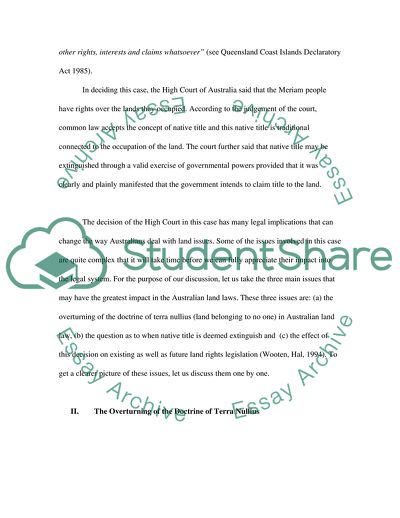Cite this document
(The Changes That Court Decision Brought to the Australian Land Laws Case Study, n.d.)
The Changes That Court Decision Brought to the Australian Land Laws Case Study. Retrieved from https://studentshare.org/law/1732293-assess-the-significance-of-the-decision-of-the-high-court-of-australia-in-mabo-v-queensland-no-2-1992-clr-1
The Changes That Court Decision Brought to the Australian Land Laws Case Study. Retrieved from https://studentshare.org/law/1732293-assess-the-significance-of-the-decision-of-the-high-court-of-australia-in-mabo-v-queensland-no-2-1992-clr-1
(The Changes That Court Decision Brought to the Australian Land Laws Case Study)
The Changes That Court Decision Brought to the Australian Land Laws Case Study. https://studentshare.org/law/1732293-assess-the-significance-of-the-decision-of-the-high-court-of-australia-in-mabo-v-queensland-no-2-1992-clr-1.
The Changes That Court Decision Brought to the Australian Land Laws Case Study. https://studentshare.org/law/1732293-assess-the-significance-of-the-decision-of-the-high-court-of-australia-in-mabo-v-queensland-no-2-1992-clr-1.
“The Changes That Court Decision Brought to the Australian Land Laws Case Study”. https://studentshare.org/law/1732293-assess-the-significance-of-the-decision-of-the-high-court-of-australia-in-mabo-v-queensland-no-2-1992-clr-1.


